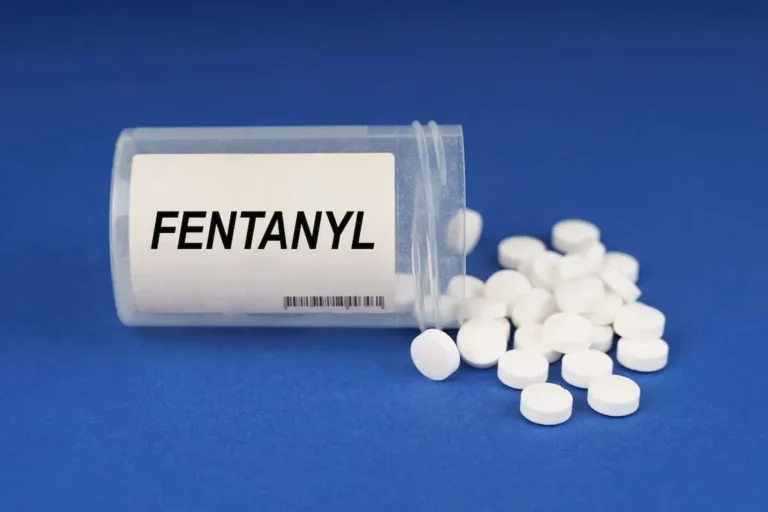Fentanyl Fold: A Comprehensive Overview

In 2023, the number of deaths caused by the misuse of synthetic opioids, primarily illegally manufactured fentanyl (IMF), reached 72,776. Across urban spaces, the same scene became a common occurrence: people standing still while hunched over. The fenty fold is a disturbing sign that became a symptom of widespread drug abuse. Increased illicit drug traffic caused an opioid epidemic. In this guide, we will explore the meaning of fentanyl fold and consider possible ways one should use to address the issue, whether they face it themselves or have relatives with this problem.
Explaining What’s The Fentanyl Fold
The term describes an unnatural physical posture that is typical for individuals under the influence of fentanyl. They stand with their head drooped, arms hanging lifelessly, and backs hunched, as if they will fall down the next moment. Even though they do not appear conscious or aware of their environment, their minds remain partially alert to their surroundings.
You may wonder: “How long does fentanyl stay in your system?” Understanding how it affects your current physical and mental state, career prospects, and relationships is necessary to achieve progress. While most intravenous chemicals stay 2–4 hours in a person’s blood, fentanyl can be detected 12 hours after an intake. Besides, its residual elements can be discovered in the blood 48 hours after a person uses it.
Fentanyl addiction is dangerous. The fenty lean is a sign of a physiological state that may result in a host of adverse effects. People who misuse fentanyl are often unable to react, move, or respond for hours. Fentanyl side effects include lower breathing rate and poor blood circulation.
Researchers have yet to provide a detailed explanation of the factors causing the fentanyl fold. There is no conclusive evidence that synthetic opioid misuse affects the spine. However, some studies confirm that fentanyl use causes muscle rigidity, impacting posture and respiration. People who consume this drug in large amounts may suffer from the fentanyl nodding symptom. They experience muscle weakness and have difficulties with processing their thoughts. It makes it impossible for them to stay in an upright position.

Take back control of your life and start on the road to recovery now.
What Causes the Fentanyl Fold?
This drug is famous for its ability to depress the central nervous system (CNS). A person who consumes it frequently and stops controlling their urges may discover that their ability to maintain their natural posture has become severely affected due to CNS depression.
Even though the fentanyl bent over posture looks dangerous and unappealing, it’s one of the clearest signs an individual needs urgent help. If one notices that their ability to stay in an upright position has diminished, it should be considered a sign of severe opioid dependence and overdosing.
One of the main reasons fentanyl affects the CNS so much is that it is 50 times stronger than heroin. Besides, it impacts a person more quickly. After the intake, a person may lose control over their posture and muscles within minutes.
Many addicts reported losing all awareness of their surroundings. First responders like EMTs consider fentanyl fold as the sure sign of a drug overdose and administer naloxone (Narcan) immediately. The symptom points to a case requiring immediate medical attention.
The fentanyl fold might be caused by other opioid addictions as well. Some heroin addicts showed signs of this symptom. However, it is mostly associated with fentanyl, as this drug is more potent than others and can immediately depress the CNS and cause muscle rigidity. It also has a distinct sedative effect, making it more challenging for a person to stay aware of their surroundings.

How to Deal With Severe Fentanyl Addiction
A person suffering from the fentanyl fold and other effects of drug misuse requires urgent support and professional care. When one suspects someone suffers from drug abuse, they should guide them toward medical specialists. Follow the steps described below to help a person cope with their dependence on fentanyl:
- Learn how to detect the signs. Consider whether a person’s behavior or physical appearance changed after they started using this zombie drug. Pay attention to their emotional stability.
- Encourage the individual to seek professional assistance. Long-term detox and rehab programs under the supervision of medical specialists have demonstrated their effectiveness.
- Don’t be judgamental. Creating a supportive environment is crucial to speed up the progress.
- Explore outpatient treatment programs. Support groups can have a profound impact on a person’s well-being.
Effective opioid addiction treatment requires a holistic approach. One should explore the available methods and use the time-tested options to achieve lasting results. Below, we have considered the most successful medical and psychological support strategies that help people achieve sustainable results and avoid potential relapses.
Detox Programs Under Medical Supervision
It is the first and most essential step in drug addiction treatment. People with substance abuse issues enroll in medical detox programs to undergo treatment in a controlled environment. Health professionals manage their symptoms and deal with complications if they occur. It allows individuals to avoid seizures or respiratory issues.
Medication Assisted Treatment (MAT)
Medical professionals administer buprenorphine, methadone, naltrexone, and other FDA-approved drugs to help a person deal with cravings and block the negative effects caused by fentanyl use. Timely interventions reduce the possibility of fatal overdose.
Inpatient Programs
Staying in a controlled environment helps people with a drug addiction problem to get support 24/7 and ensure that their needs are fully met. Such safe spaces allow them to avoid triggers provoking unhealthy behaviors. Inpatient treatment programs are especially important for those affected by the fentanyl fold, where the risk of overdose and relapse is significantly higher. Besides, anyone can opt for a daytime care program.
Outpatient Programs
Those who enroll in intensive outpatient programs (IOP) can attend therapy sessions and receive support while continuing to work or study. They can choose an IOP with the desired number of weekly hours and achieve sustainable progress on the way to complete recovery.
Psychotherapy
Cognitive-behavioral therapy (CBT) is highly effective in addiction treatment. It enables people to unveil the root causes of their problems and develop coping mechanisms. Many individuals who become addicted to the zombie drug also have mental health issues. Enrolling in special programs allows them to deal with concurrent conditions.
Aftercare Services
Achieving complete recovery after fentanyl fold is impossible without enrolling in aftercare programs. Participation in 12-step programs, regular sessions with counselors, and group sessions is recommended. It allows people with addiction to remain motivated and learn how to become accountable for their decisions. They discover how to achieve muscle relaxation, avoid stress, and deal with triggers effectively.

This can be a difficult journey, but you don’t have to go it alone. Let us be your guide and provide you the environment needed to regain control of your life and begin the path to recovery.
Moving Toward Self-Empowerment and Recovery
While nationwide prevention strategies demonstrated the first tangible results, the number of people suffering from this condition remains too high. Acting as a CNS depressant, fentanyl impacts the whole nervous system and makes it impossible for a person to overcome this condition without external assistance. Nobody should battle opioid addiction alone.
At Eco Sober Houses, we recognize how difficult it can be to quit drugs. While MAT interventions are necessary to achieve health improvement, lasting results can be achieved only if one complements them with detoxification and psychological programs. We focus on providing a drug-free environment for living and a community of like-minded people, motivating our clients to regain control over their lives. Contact our team now, and we will assist you with advancing toward recovery.




